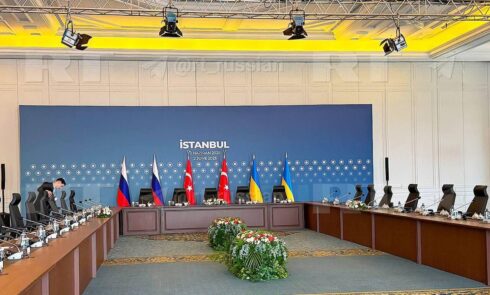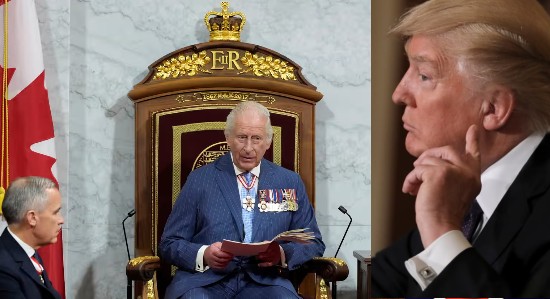President Zelensky Challenges Donal Trump’s Claims on Ukraine War: Ukrainian President Volodymyr Zelensky has strongly criticized former U.S. President Donald Trump for being influenced by Russian disinformation. Zelensky’s remarks came in response to Trump’s recent statements suggesting that Ukraine was responsible for the ongoing war, a claim widely refuted by international analysts. The Ukrainian leader accused Trump of living in a “bubble of lies,” arguing that his statements align with Kremlin propaganda rather than reality.
One of the most contentious claims made by Trump was that President Zelensky’s approval rating in Ukraine had dropped to a mere 4%. In reality, multiple independent polls indicate that Zelensky still enjoys a public approval rating exceeding 50%. The Ukrainian president attributed Trump’s misleading remarks to the influence of Russian narratives, which seek to weaken Ukraine’s global support.
Tensions Escalate Between President Zelensky and Trump Over Election Criticism
The rift between Zelensky and Trump deepened further after the former U.S. president referred to Zelensky as a “dictator without elections.” Trump criticized Ukraine’s decision to postpone elections, implying that Zelensky was avoiding democratic accountability. However, President Zelensky firmly rejected this characterization, explaining that holding elections during a full-scale war was both impractical and dangerous.
Ukraine’s electoral laws require secure voting conditions, which are currently impossible due to ongoing Russian military aggression. Zelensky emphasized that democracy cannot function without security, and ensuring the safety of millions of Ukrainians remains a top priority. Many Ukrainian and European officials echoed his stance, pointing out that democratic processes must be protected from external interference.
Concerns Over Trump’s Shift in Russia Policy
Adding to the controversy, Trump has recently signaled a shift in U.S. policy toward direct engagement with Russia while excluding Ukraine and European allies from negotiations. This development has raised alarms in Kyiv and across Europe, as it suggests a potential undermining of Ukraine’s sovereignty in future peace talks.
President Zelensky responded by reinforcing Ukraine’s commitment to its territorial integrity, rejecting any diplomatic solutions that would force Ukraine to make concessions to Moscow. He stressed that meaningful peace talks must involve Ukraine as a key stakeholder and that any effort to negotiate without Kyiv’s participation would be unacceptable.
Ongoing Russian Aggression and International Reactions
These tensions unfold against the backdrop of continued Russian military offensives in eastern Ukraine. In recent days, Russia has intensified its drone and missile attacks, particularly targeting the Odesa region. The attacks have caused significant damage to civilian infrastructure and raised further concerns about Ukraine’s ability to sustain its defenses without continued Western support.
European leaders have expressed frustration over the U.S. political debate on Ukraine, with many fearing that Trump’s stance could weaken transatlantic unity. Some analysts warn that if Trump’s approach gains traction, it could embolden Russia and prolong the conflict. Meanwhile, the Biden administration continues to affirm its support for Ukraine, emphasizing that U.S. military and financial assistance remains crucial in resisting Russian advances.
The Road Ahead for Ukraine-U.S. Relations
The ongoing friction between President Zelensky and Trump highlights the complex and evolving nature of U.S.-Ukraine relations. While Kyiv remains heavily reliant on American aid, uncertainty over the future U.S. administration’s policies has created unease among Ukrainian officials.
As the 2024 U.S. elections approach, the global community will closely watch how American foreign policy toward Ukraine develops. For now, Zelensky remains steadfast in his efforts to counter misinformation and ensure that Ukraine’s struggle for sovereignty is not undermined by external political agendas.














